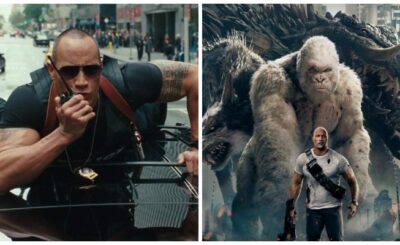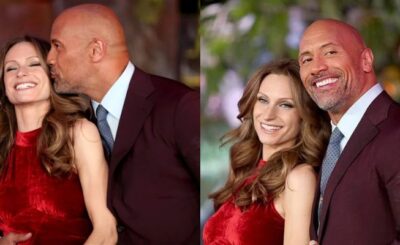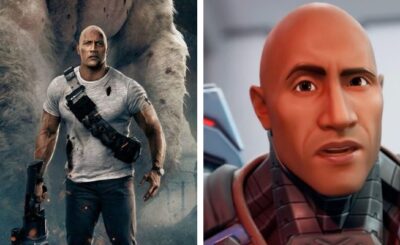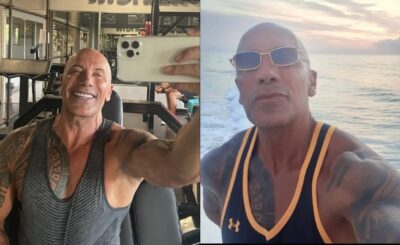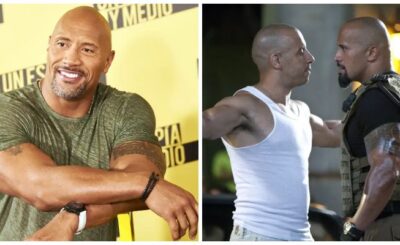Looking back at the history of the Miami Heat, there are several players that perhaps were given up on too soon.
Many people may not know this but the Miami Heat is actually one of the younger franchises in the league. Founded in 1988, the Heat is only roughly 35 years old. Despite that, and interestingly, the Heat is also one of the most storied and accomplished franchises in such a short time.
From the early years of Rony Seikaly to the Alonzo Morning and Tim Hardaway Jr. years to the semi-modern era that included the likes of Dwyane Wade, LeBron James, Chris Bosh, and then now Jimmy Butler and Bam Adebayo – the Heat has had plenty of great players to flow in and out of the franchise.
As is the case for nearly every other franchise in the league, where there are big hits there are also generally big misses. And one of the worst feelings for a franchise has to be when they give up on a player before he blossoms.
Players the Miami Heat gave up on too early
Over the course of the Heat’s history, there are several players that could fit the mold of players given up on too soon. Let’s explore the nine best examples of players the Heat gave up on early, beginning with one of the most recent.
9. Precious Achiuwa, traded in 2021
Two offseasons ago, after his rookie season, the Miami Heat elected to include Precious Achiuwa in the sign-and-trade deal for Kyle Lowry. Considering how much Precious has grown as a player in Toronto coupled with the struggles that the Heat has had in trying to find the right frontcourt mate to pair with Bam Adebayo and how Lowry has now fallen out of grace in Miami, you can’t help but wonder how this team looks right now if they had never made that move.
Theoretically, the Heat would have their potential long-term answer next to Bam (or at least a better option than they have at the moment) and some added wiggle without Lowry’s contract on the books.
Since his departure from Miami, Achiuwa has pretty much doubled his overall production and shown the ability to hit 3-point shots (or at least a developing ability to do so).
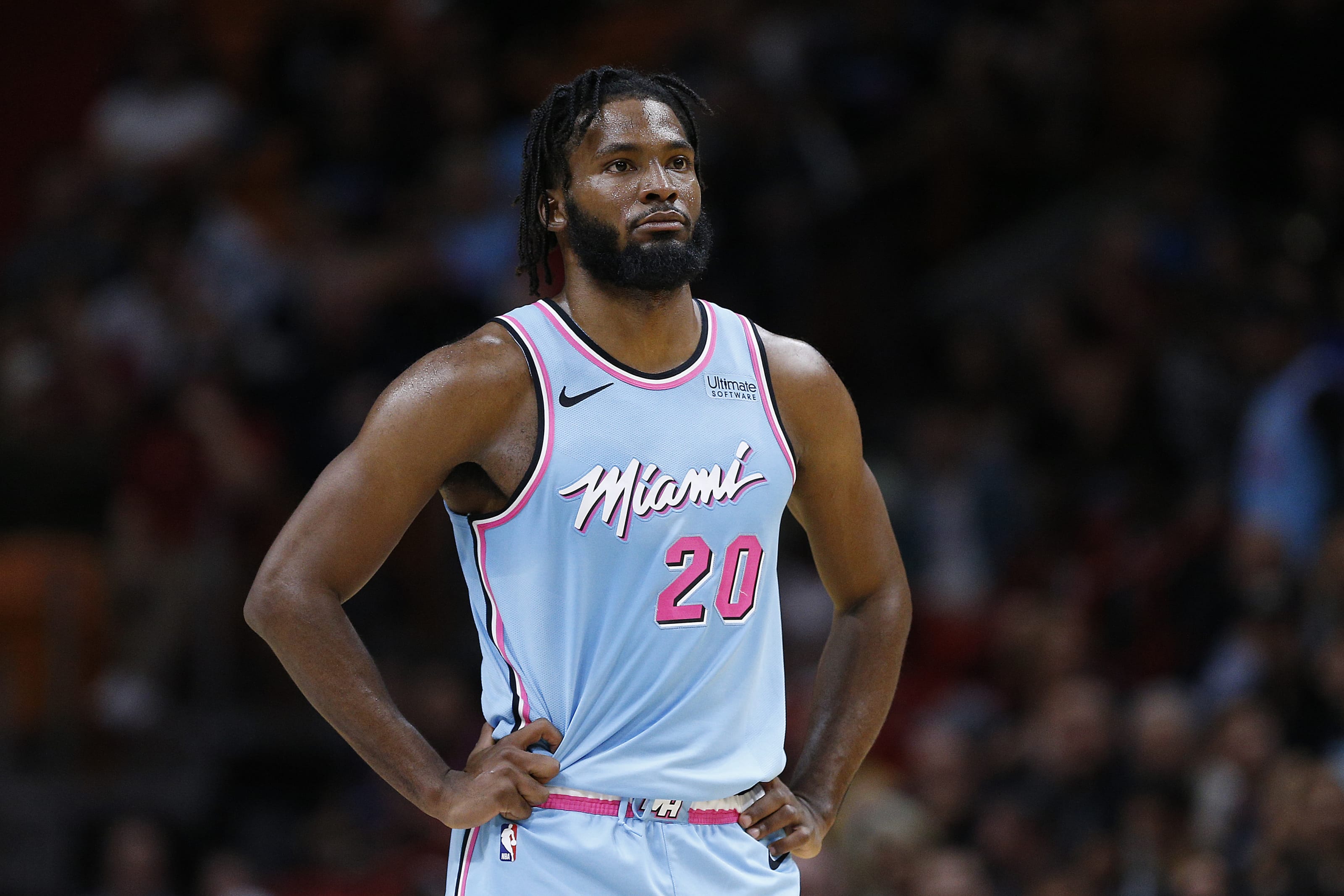
8. Justise Winslow, traded in 2020
I don’t think any Miami Heat fans would argue or push back much with the idea that Justise Winslow has been one of the most polarizing players in team history in the last 10 years. When he was drafted No. 10 overall in 2015, many thought this franchise had just landed another hall-of-fame talent. However, that’s not exactly how his tenure with the Heat panned out.
While he did have his moments in Miami, he was, overall, somewhat of a disappointment. He fell short of expectations with the team. Whether that blame falls on Winslow or Miami, one thing is clear – with how great this franchise has been with player development over the last decade or so, I can’t help but wonder if the approach with Winslow is a bit different.
Instead of being thrown into the fire, which he was during his rookie season, how much different would’ve his tenure been with the team if he spent more time in the team’s developmental system (or a bit more in the background, at least initially)?
That’s neither here nor there, but a thought. Even when the Heat decided to trade him, when he was healthy he was productive. The fact that the Heat traded him at 24 still seems pretty premature to me. There were probably other factors at play here that went into that decision but, in a vacuum, there’s no question that the Heat may have given up on Winslow a little too soon. Especially with how many times the Heat has excelled with reclamation projects.
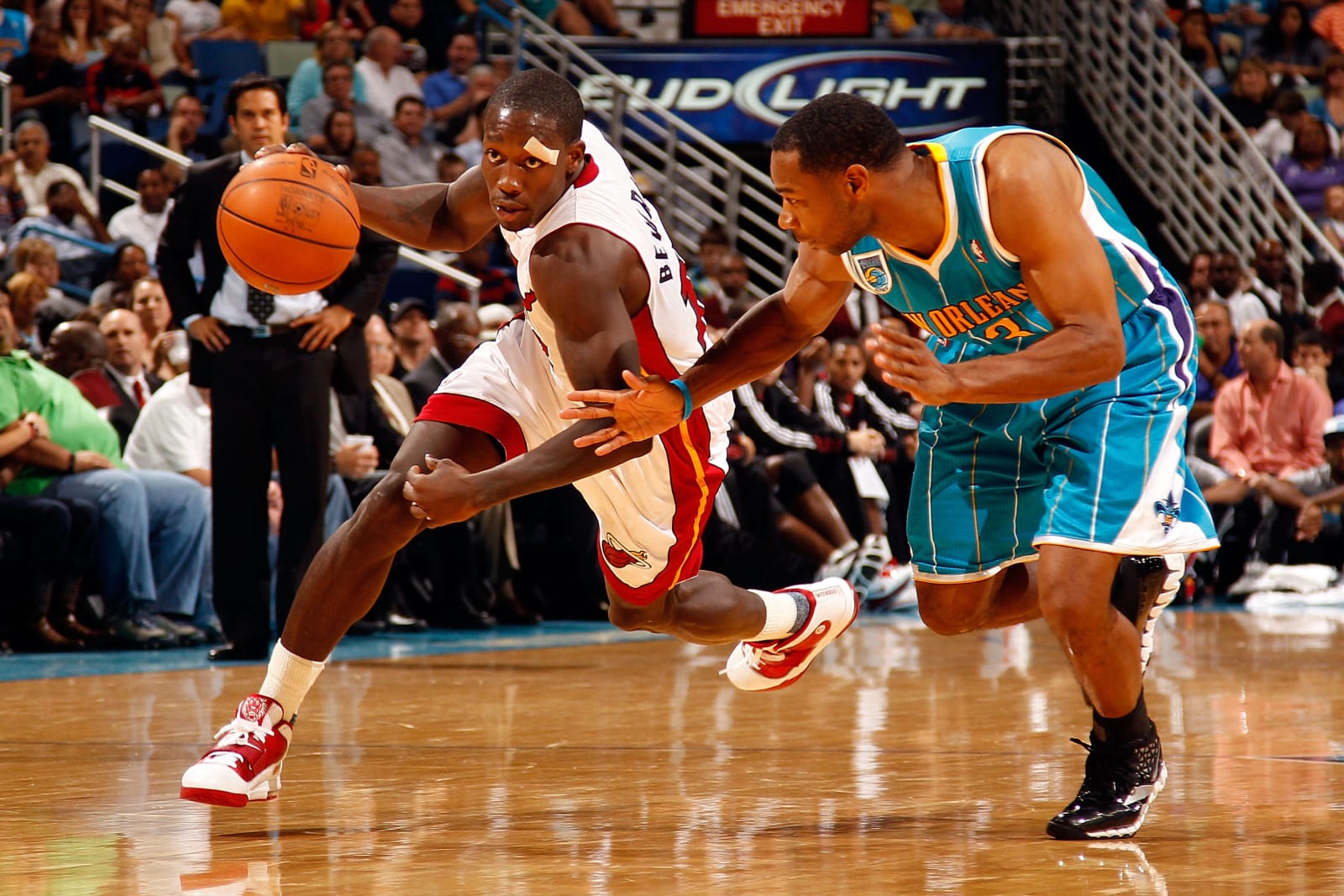
7. Patrick Beverley, cut in 2010
In what might’ve been the biggest “what if” during the Miami Heat’s Big Three era (with LeBron James, Dwyane Wade, and Chris Bosh), the team decided to cut Patrick Beverley after a relatively impressive showing in training camp in 2010. The Heat clearly wanted to go with more veteran options and decided to pass on an unproven and somewhat undersized point guard.
Little did the Heat know that Beverley would end up carving out a very nice career for him just a couple of years late? Beverley reemerged with the Houston Rockets a couple of years later in which he catapulted to what has been a long career in the league. Nevertheless, he’s a player that would’ve made a huge difference in Miami. Especially in that first year of the Big Three when the Heat didn’t have many other productive players on the roster.
During the best season of his career, Beverley averaged 12 points and four rebounds on 40 percent shooting from 3-point range. Nearly every stop he’s had in the NBA, Beverley has played an important role for the team. After the Heat cut him in training camp, Beverley has gone on to have a very successful 11-year (and counting) career.
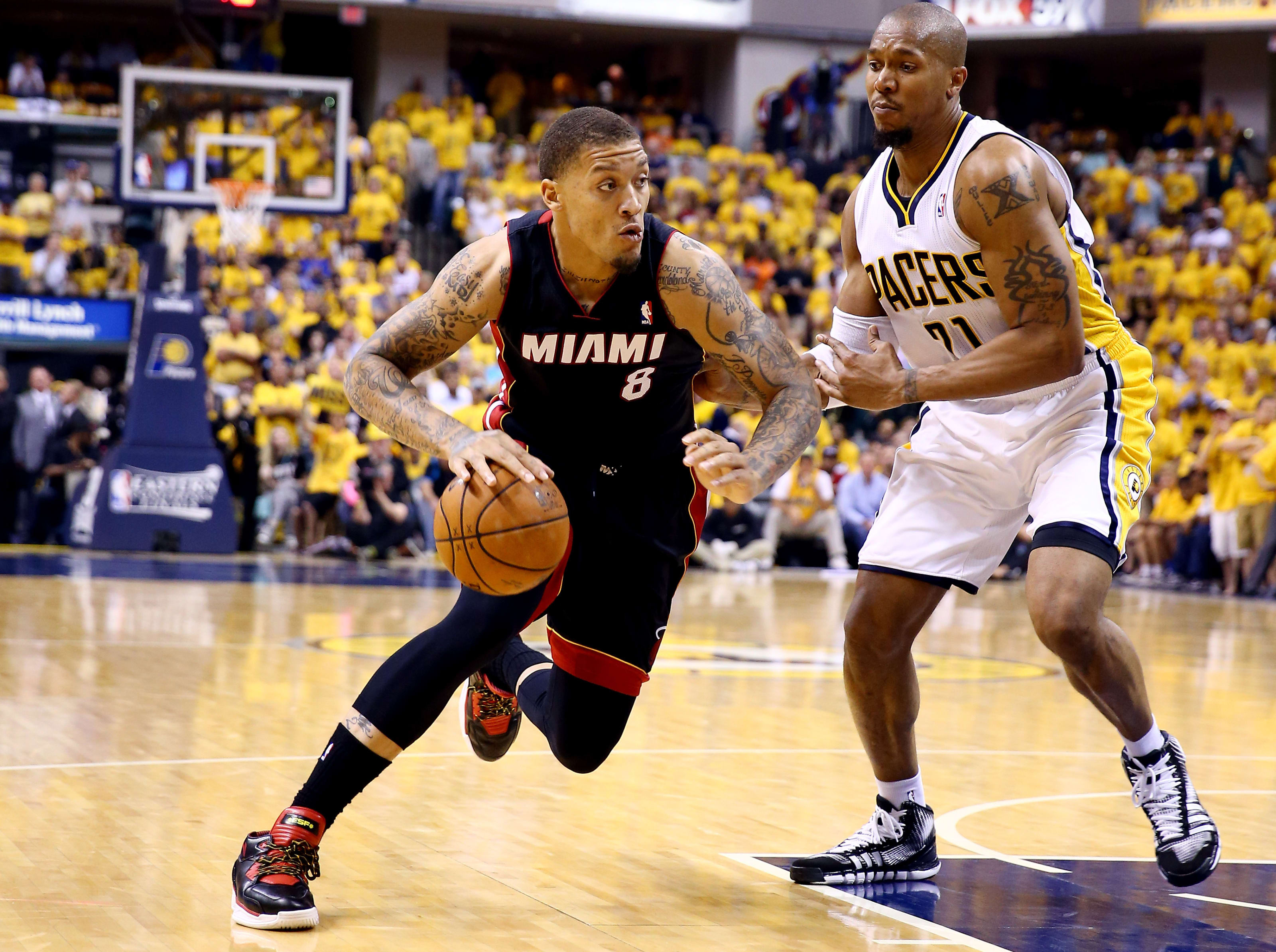
6. Michael Beasley, traded in 2010
During the 2008 NBA Draft, after falling to No. 2 in the NBA Draft Lottery, the Miami Heat selected the “consolation prize” to Derrick Rose. Michael Beasley was an offensive wizard but lacked the intangibles that it took to blossom into an NBA star. After playing two seasons with the Heat, Miami (in an attempt to create additional cap space) traded Beasley to the Minnesota Timberwolves to make room for the Big Three.
Even though it was a necessary move, trading a 22-year-old player with as much offensive talent as Beasley possessed is still pretty crazy looking back. I get it. Any team would’ve made the move if it meant landing LeBron, Wade, and Bosh. Still, with as great as this team has been with internal player development, you can’t help but wonder if Beasley’s career ends up differently if he stays in Miami.
During Beasley’s first season in Minnesota, he would go on to average 19 points and six rebounds on 45 percent shooting from the field and 37 percent shooting from 3-point range. But that was the last time Beasley truly flashed as a player.
Beasley had an 11-year career (with seven teams, including two stints in Miami) in the NBA but never truly developed into the player that many believed he could be. Perhaps he does blossom into that player if the Heat had fully invested in him.
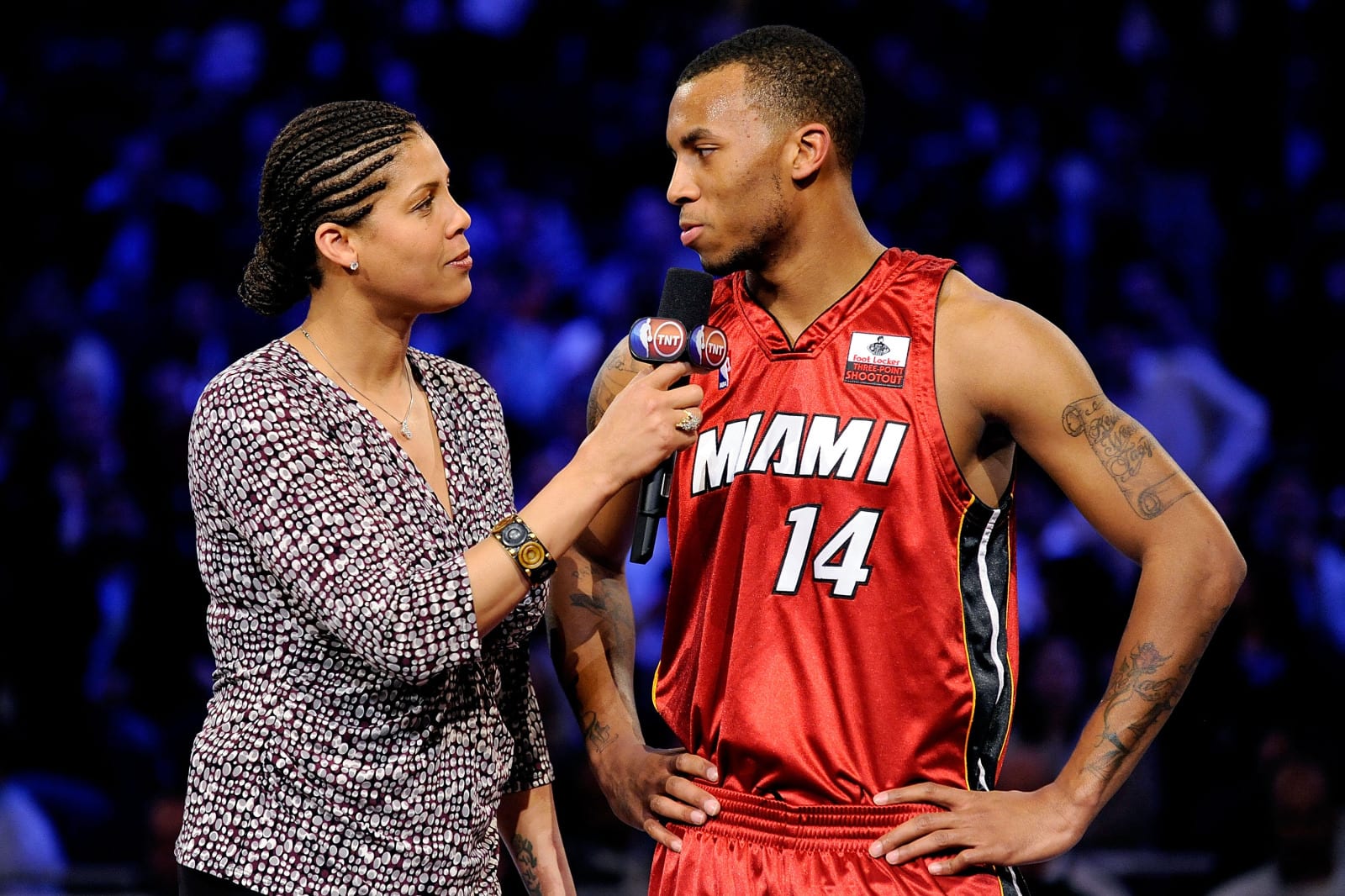
5. Daequan Cook, traded in 2010
Daequan Cook was a late first-round pick in the 2007 NBA Draft that was traded to the Miami Heat. In an attempt to surround Dwyane Wade with a different array of talent (transitioning away from the Shaquille O’Neal build), Cook was viewed as a player that could potentially blossom as an off-ball offensive threat. And that’s exactly what he was for the team during his first couple of seasons in Miami.
But after his first and second seasons, Cook’s minutes were slashed and it quickly became clear that his role with the team was diminishing. Also in anticipation of a busy summer of 2010, the Heat was pretty much gutting the roster. And Cook was part of that exodus. Cook was traded to the Oklahoma City Thunder during the 2010 NBA Draft.
However, during his second season in Miami, Cook averaged nine points on 38 percent shooting from 3-point range. In my mind, I’m thinking how much the Heat could’ve used such a shooter next to LeBron James and Dwyane Wade. During the 2010-11 season in OKC, Cook shot a career-high 42 percent from 3. I can’t help but feel as if the Heat let him go a season or two too early.
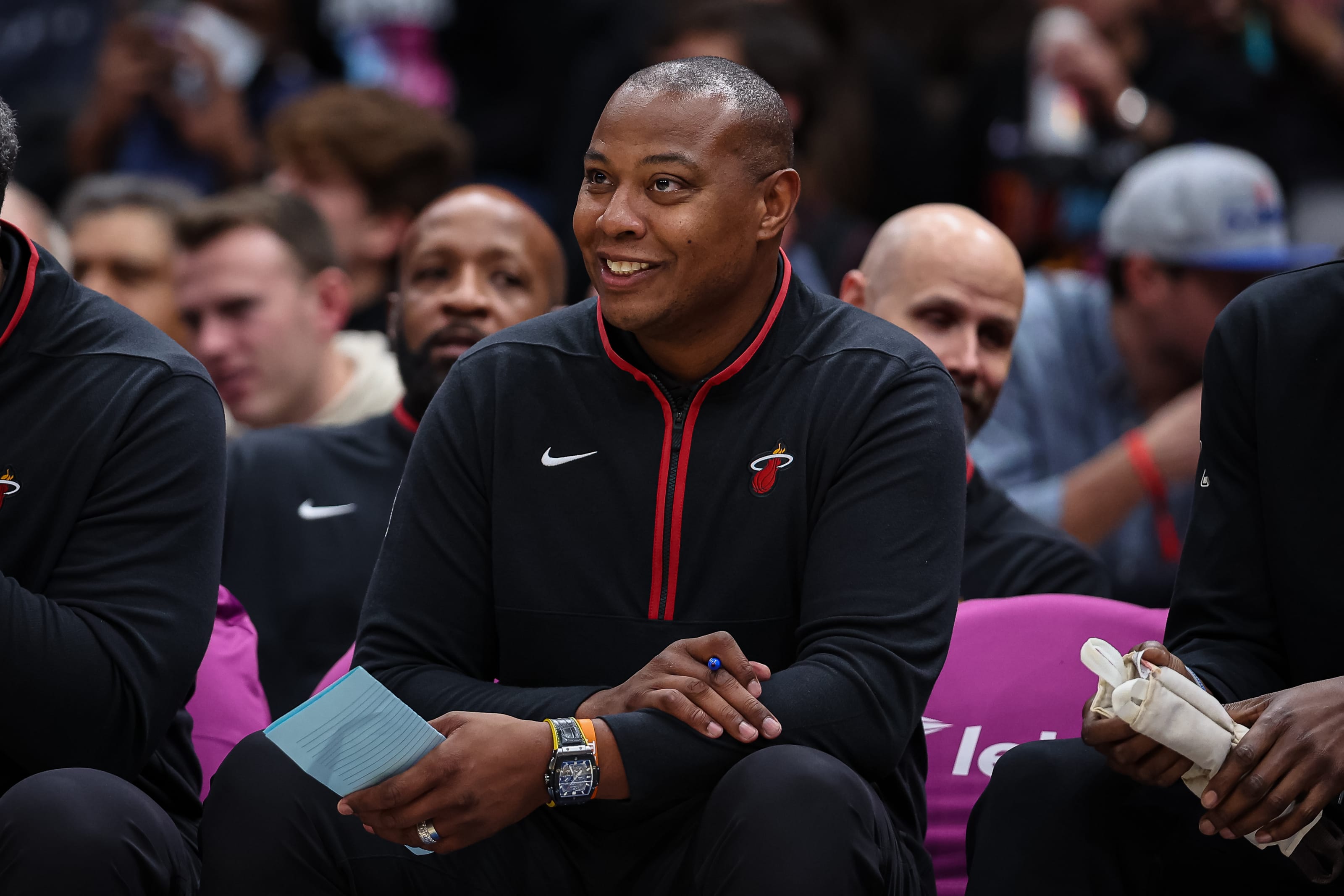
4. Caron Butler, traded in 2004
Caron Butler was part of the Miami Heat’s start of a colossal ascension atop the NBA’s elites. During the 2002 NBA Draft, the Heat selected Butler with the 10th overall pick. And during his rookie season, he was a valuable part of what would become one of the most entertaining teams in NBA history. The 2003-04 season for the Heat would change the trajectory of their franchise forever.
With a solid core of young players, which included Butler, rookie Dwyane Wade would emerge as the superstar that the team needed to lead the way. The young Heat team quickly become one of the darlings of the Eastern Conference that season. They would go on to lose to a more veteran Indiana Pacers team in the Eastern Conference semifinals, but it was clear the Heat was coming.
The unfortunate part of that story is that Pat Riley didn’t want to wait around for this team to continue to make baby stapes up the East hierarchy. Instead, Riley packaged the Heat’s collection of young players (including Butler but sans Wade) and sent them to the Los Angeles Lakers in exchange for Shaquille O’Neal.
Butler was the epitome of Heat culture and would go on to have a great career, most notably with the Washington Wizards. Butler would make two all-star teams with the Wizards and would go on to win an NBA Championship as a Dallas Maverick in 2011 (though he was injured), ironically against the Miami Heat.
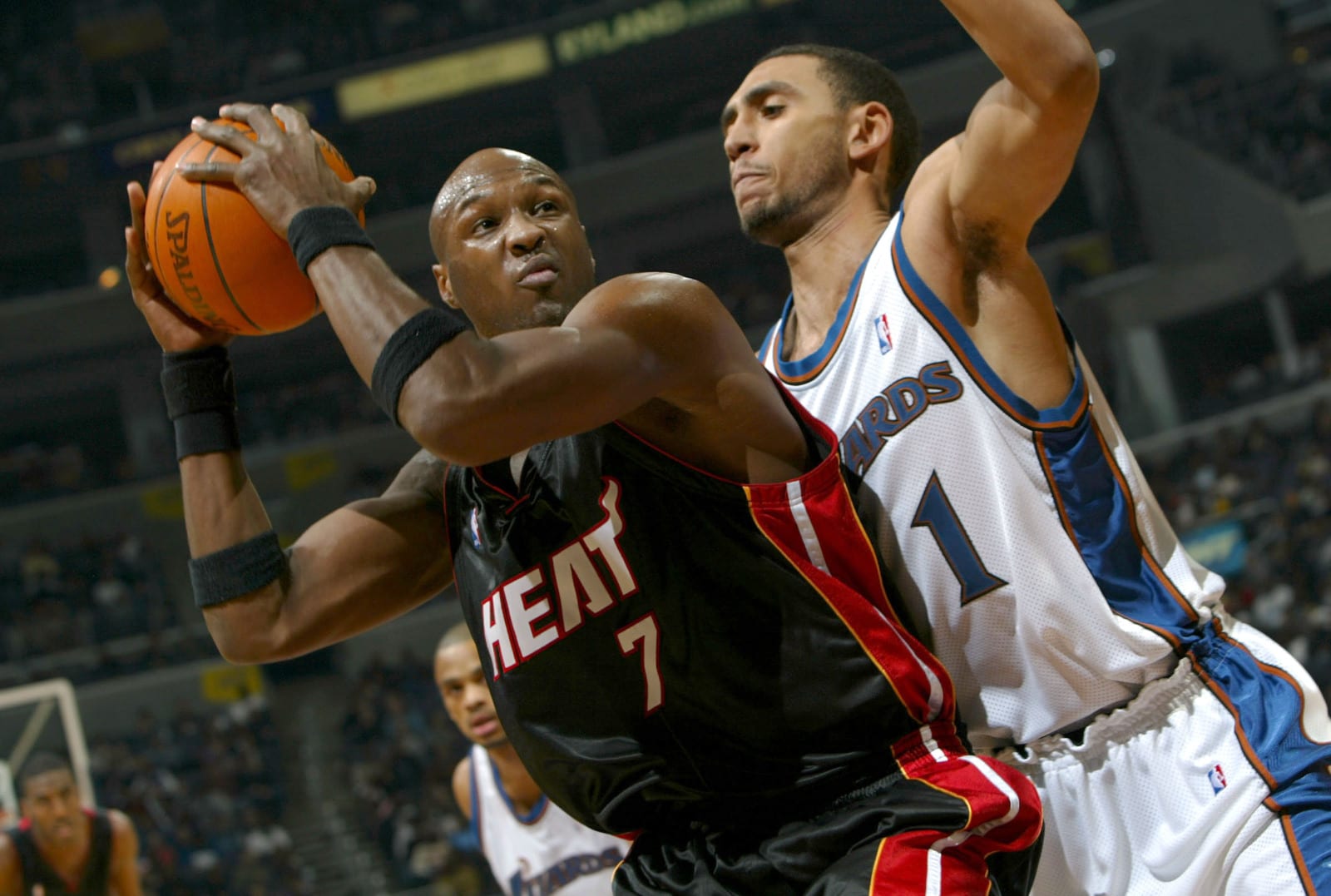
3. Lamar Odom, traded in 2004
Lamar Odom was another young player that ended up being part of that trade package for Shaquille O’Neal that you can argue the Miami Heat gave up on too soon. After a solid start to his career with the LA Clippers, Odom was signed by the Heat during the 2003 offseason. The idea was that he would be a veteran influence on a talented young Heat team. And that’s exactly what he was for the Heat in which he averaged 17 points, 10 rebounds, and four assists per game on 43 percent shooting from the field.
He was so good for Miami that one season he became the centerpiece of the blockbuster deal for Shaq. In the end, the deal would work out for both sides but the longevity that Odom had after the deal with the Lakers compared to Shaq with the Heat is what makes this a real conversation.
Odom would go on to have a great career. He won two NBA Championships with the Los Angeles Lakers and would win the NBA’s Sixth Man of the Year award in 2011. Still, it would’ve been interesting to see how history is changed if the Heat had held on to him.
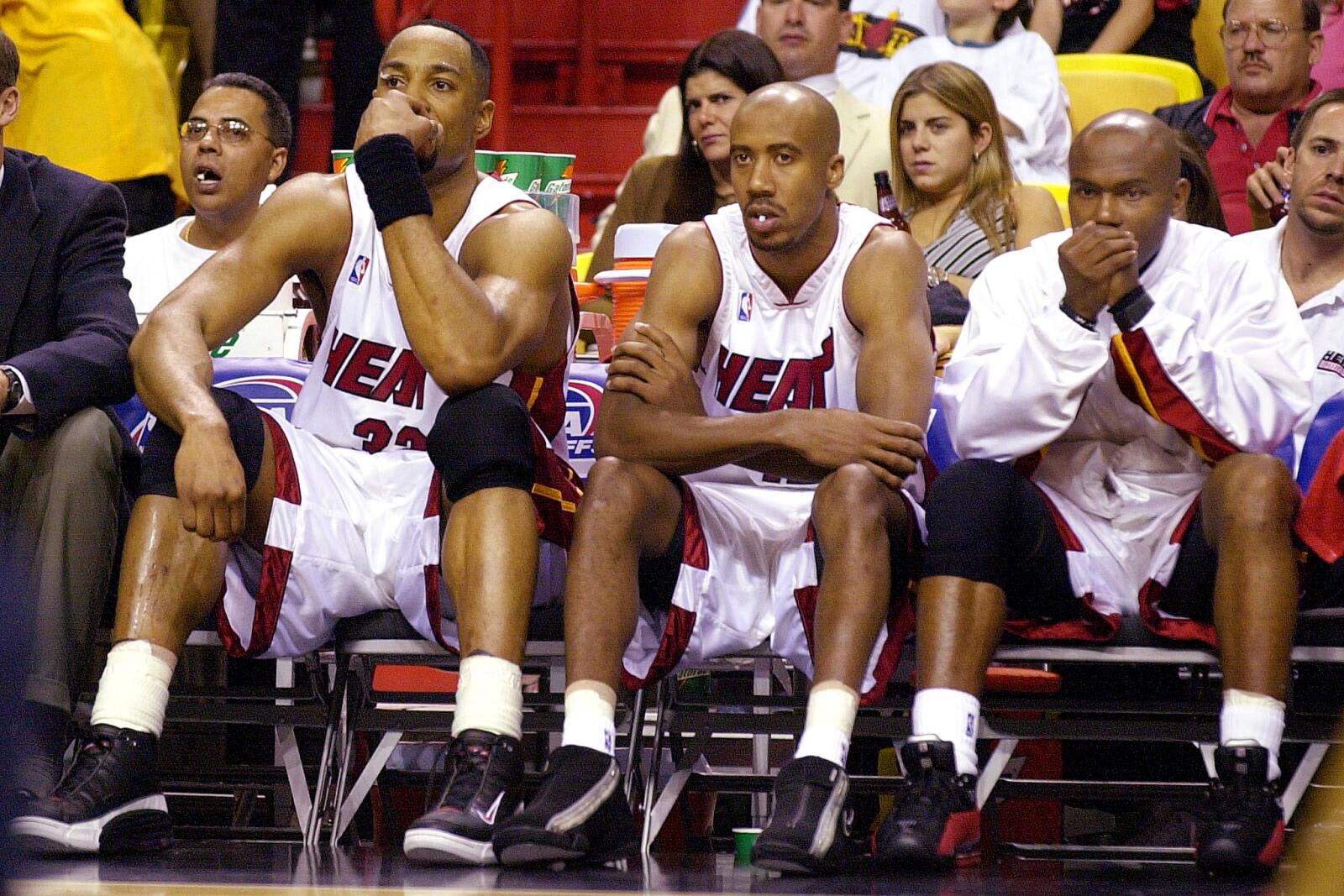
2. Bruce Bowen, not re-signed in 2001
During the 1996-97 season, the Miami Heat took a flier on Bruce Bowen in the way of a 10-day contract. He played one minute with the team before they didn’t sign him. But Bowen did eventually make his return to Miami during the 1999-00 season. And the Heat didn’t make the same mistake and retained him the following season.
During the 2000-01 season, Bown played 82 games for the Heat (starting 72 of them) and finished by averaging eight points and three rebounds per game. However, the Heat didn’t re-sign Bowen and that led to the start of something special for him in San Antonio.
With the Spurs, Bowen would play a special eight years in which he won three NBA Championships, was named to the All-NBA First Team Defense five times, and had his No. 12 jersey retired by the franchise.
Bowen was never a “star” player by any means but he was certainly a key part of the Spurs’ dominance during the 2000s. He was the glue guy and the epitome of the perfect role-player. And the Heat certainly just missed on that.
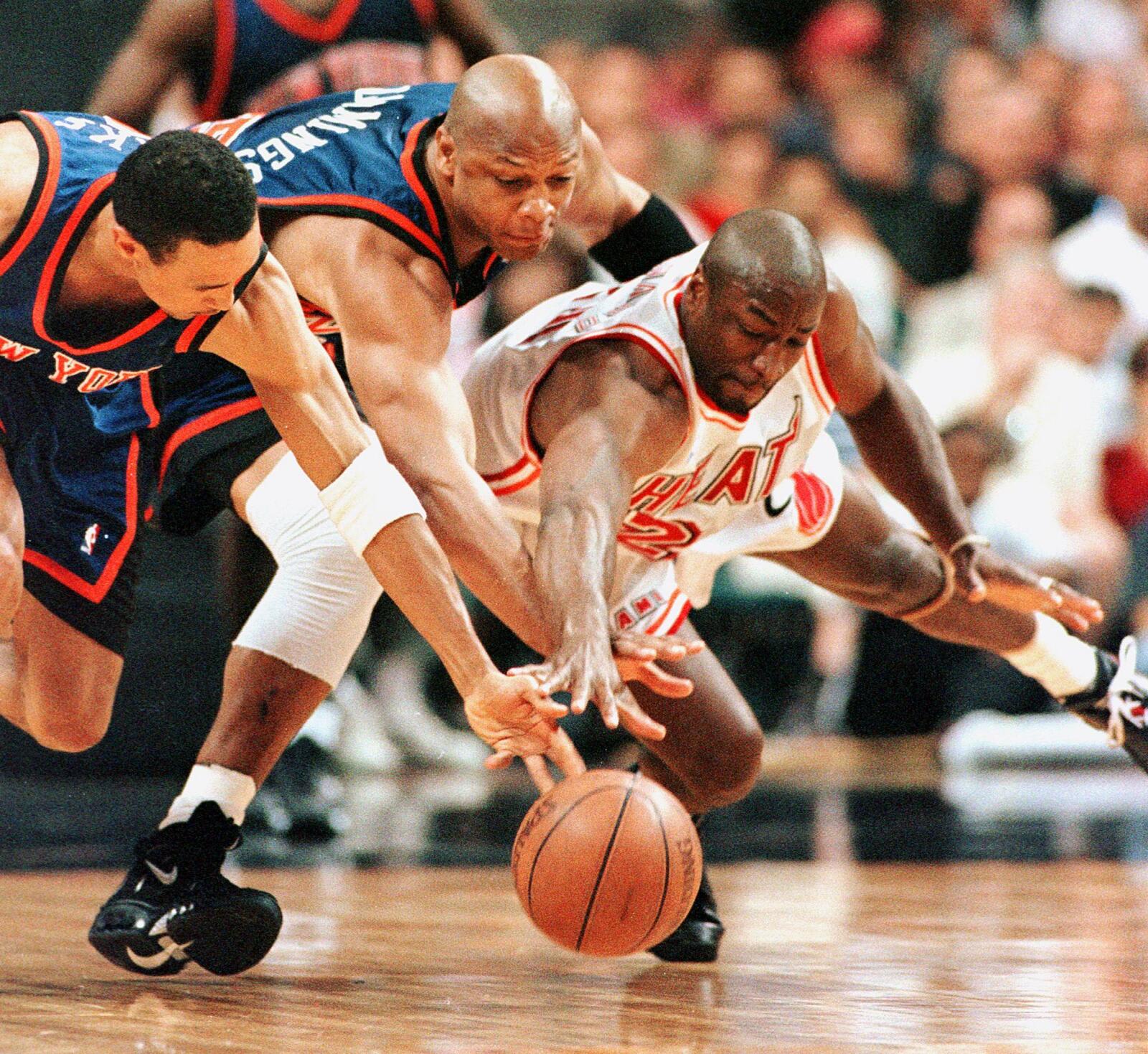
1. Voshon Lenard, traded in 2000
During the 2000 offseason, the Miami Heat traded Voshon Lenard to the Denver Nuggets. It’s one of the deals in which you wonder if it was the best move for the Heat, especially considering that Lenard would go on to have some really nice seasons in his post-Heat career.
After being a second-round pick for Miami, Lenard would start his career with five solid seasons for the Heat. Though, he did struggle with injuries throughout the last couple of seasons of his tenure with the team. And that’s probably the biggest reason why the Heat decided to trade him.
Nevertheless, after the Heat’s decision to trade Lenard, he would still go on to have four-straight seasons of double-digit scoring averages on 36 percent shooting from 3 or better. This is not one of those deals that truly backfired on the Heat, but there’s no question the Heat might’ve punted a bit prematurely on a player that they developed.


